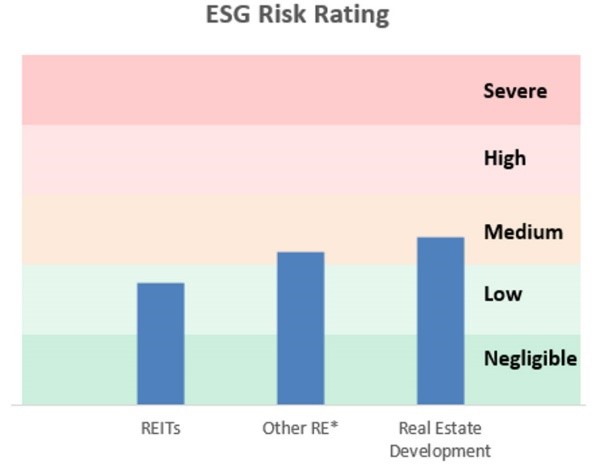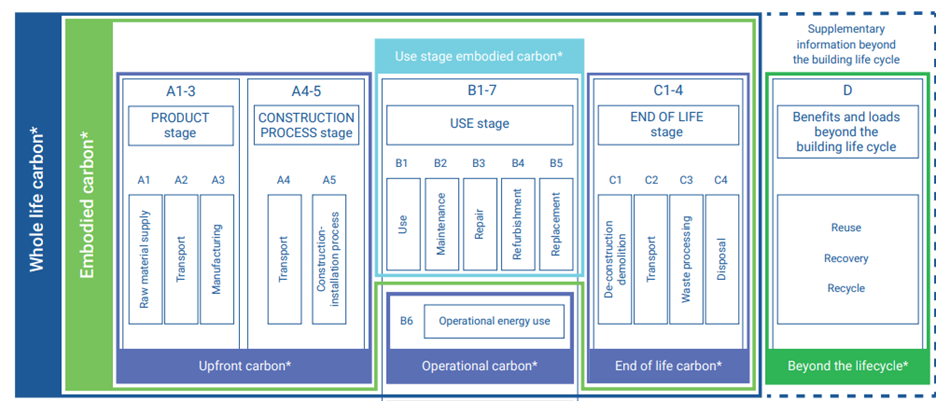Screening for ESG winners in the property industry
Over the past decade, ESG awareness, focus and reporting have been increasing among asset owners, companies, and investors alike. The global listed real estate industry is no different, and as investors in this space, we have seen significant improvements in recent years in ESG disclosure and initiatives.
This is particularly so in the US, which has historically not been as strong in ESG disclosure as other main investment geographies such as Europe, Australia and Hong Kong.
Following is a compilation of various ESG metrics published by NAREIT (National Association of Real Estate Investment Trusts) across the top 100 US REITs by market capitalisation. Evident is the drastic improvements in ESG disclosure the entities have made across the ESG spectrum compared to only a few years ago, in 2017.
Source: NAREIT ESG REIT Dashboard 2020.
Almost all the top 100 US REITs now report ESG publicly, and two-thirds issue an annual stand-alone sustainability report. Focus on tenant engagement and employee wellbeing has also improved significantly. An area that needs further improvement among REITs – not just in the US, but globally – is the tracking and disclosure of carbon targets/emissions, energy and water usage, and waste management data. We expect this reporting to continue to improve in the future as investors place increasing attention on ESG, particularly the ‘E’ and ‘S’ as part of responsible investment.
How do real estate ESG risks compare to other industries?
Perhaps intuitively, real estate as a sector is likely to have a lower environmental risk than say, the oil and gas sector, or the mining sector. But how does it fare against other industries? What about when the ‘S’ and the ‘G’ is factored in too?
To answer this question, we analysed the data provided by third-party ESG research provider Sustainalytics (a Morningstar company).
According to Sustainalytics research, real estate – which includes REITs, real estate operating companies and property developers – has a lower ESG risk profile on average than other industries. More than 60% of real estate entities under Sustainalytics’ coverage are rated as either having negligible ESG risk or low ESG risk, compared to ~30% when other industries are included.
Source: Sustainalytics
Additionally, real estate has one of the lowest ‘event rates’ of all industries, referring to events or controversies that can negatively impact stakeholders, a company’s operations or the environment.
Digging deeper, within the real estate sector itself, REITs have the best average ESG risk rating (‘low risk’), while developers fare the worst.

Source: Sustainalytics *Includes REOCs, mortgage REITs and RE management companies
ESG issues in focus: carbon footprint
According to the World Green Building Council, buildings are currently responsible for 39% of global carbon emissions. Not surprisingly, one of the main ESG challenges facing the real estate sector is the reduction of the carbon impact of their portfolio through the whole life cycle of a building.
As illustrated in the diagram below, the carbon emissions lifecycle of a building can be classified into three main stages – upfront, operational and end of life carbon.

Source: World Green Building Council based on European Standards EN 15978
For the real estate industry, much of the focus has been placed on reducing operational carbon emissions by reducing energy usage. Like-for-like energy reduction is a key metric tracked by ESG rating providers, and some companies have set organisational targets for medium to long-term energy reduction. It is a relatively low-hanging fruit, and most ‘noticeable’ compared to the other stages in the lifecycle because upfront carbon emissions on existing buildings have already been released before the building has even begun to be used. Reducing use stage embodied carbon – relating to the carbon footprint of such items as maintenance, repair and refurbishment – requires a fundamental change in the approach to building design and waste reduction. Existing buildings have less ability to improve their embodied carbon footprint and thereby emissions released throughout the supply chain.
One of the issues more pertinent for property developers than REITs is upfront carbon, which is emitted in the materials production and construction phases of a building. According to estimates (1), more than half of total carbon emissions released during the whole lifecycle of buildings constructed between 2020 and 2050 will be due to upfront carbon. The production of steel and cement for building construction is very carbon-intensive because those materials require very high temperatures and the chemical reactions release carbon dioxide directly. It is estimated that cement manufacture is responsible for ~7% of global carbon emissions (2) and steel production is responsible for ~7-9% of global carbon emissions (3).
As part of our investment process at Quay, we limit our exposure to upfront carbon emissions because we screen out property developers and other entities who rely on property development as a significant source of revenue. By avoiding investment in these types of companies and entities, we can actively reduce the overall carbon footprint of our investment portfolio.
How investors can screen for ESG
At Quay, we implement an ESG screening process that can eliminate ESG risk factors and set investors up for success:
1. Incorporating negative screens into the investment process and screening out companies with poor environmental and/or social profiles, excluding:
- geographies such as Asia Pacific emerging markets, Eastern Europe, Latin America & Caribbean and the Middle East / Africa, and
- entities that rely on development to generate income
2. Applying a significant weight to corporate governance in the research and analysis phase
3. Participating in proxy voting, reviewing shareholder resolutions, and taking an active interest in special issues and situations, and
4. Conducting your own research and utilising third-party ESG research firms to assess, monitor and identify actionable items on new and existing investees.
Investing in global listed real estate
Quay, a Bennelong Funds Management boutique, focuses on the preservation and creation of wealth through innovative strategies in real estate securities. For more insights on global property, visit Quay’s website.
- Architecture 2030, Total Carbon Emissions of Global New Construction every year from 2020 - 2050
- Stockholm Environment Institute (2018): Low-Emission Steel production – decarbonising heavy industry
- Material Economics (2019) Industrial Transformation 2050
1 contributor mentioned

